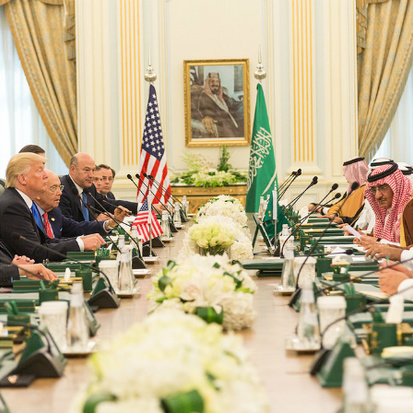President Donald Trump’s first trip abroad can, in many measures, be judged a success, largely avoiding the controversies that loom over his administration in Washington. His swift condemnation of the terror attack in Manchester during his press conference with Palestinian leader Mahmoud Abbas and speech on terrorism in Saudi Arabia won praise even from some of his critics. Trump became the first sitting president to visit the Western Wall, and one of the first people to take a direct flight from Riyadh to Tel Aviv. While there, he expressed enthusiasm for negotiating a long-elusive peace deal between Israel and the Palestinians. In Brussels, the President also appears to be well on his way to shifting the priorities of NATO allies closer to his own by concentrating more on terrorism and defense spending payment obligations.
What are the global ramifications of Trump’s trip? How much of a foreign policy shift is the United States (US) experiencing under President Trump?
Join us, the Cleveland Council on World Affairs, Global Cleveland, International Partners in Mission, and the Northeast Ohio Consortium for Middle Eastern Studies (NOCMES) for a free discussion on the changing landscape of U.S. foreign policy.

